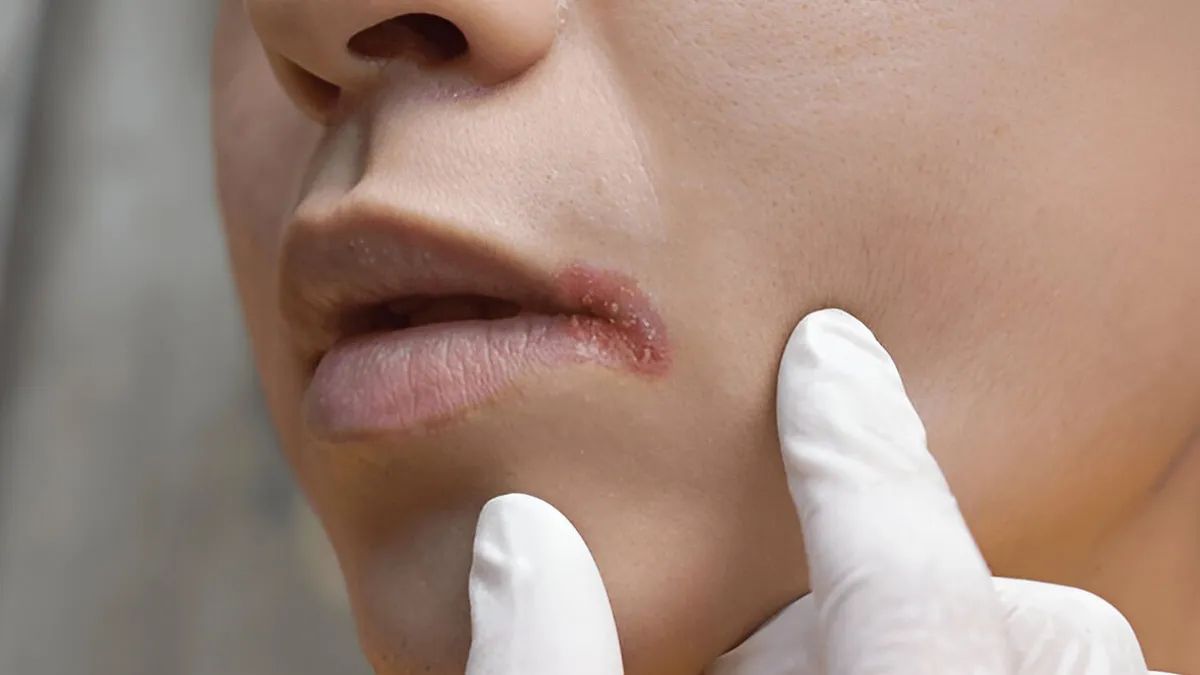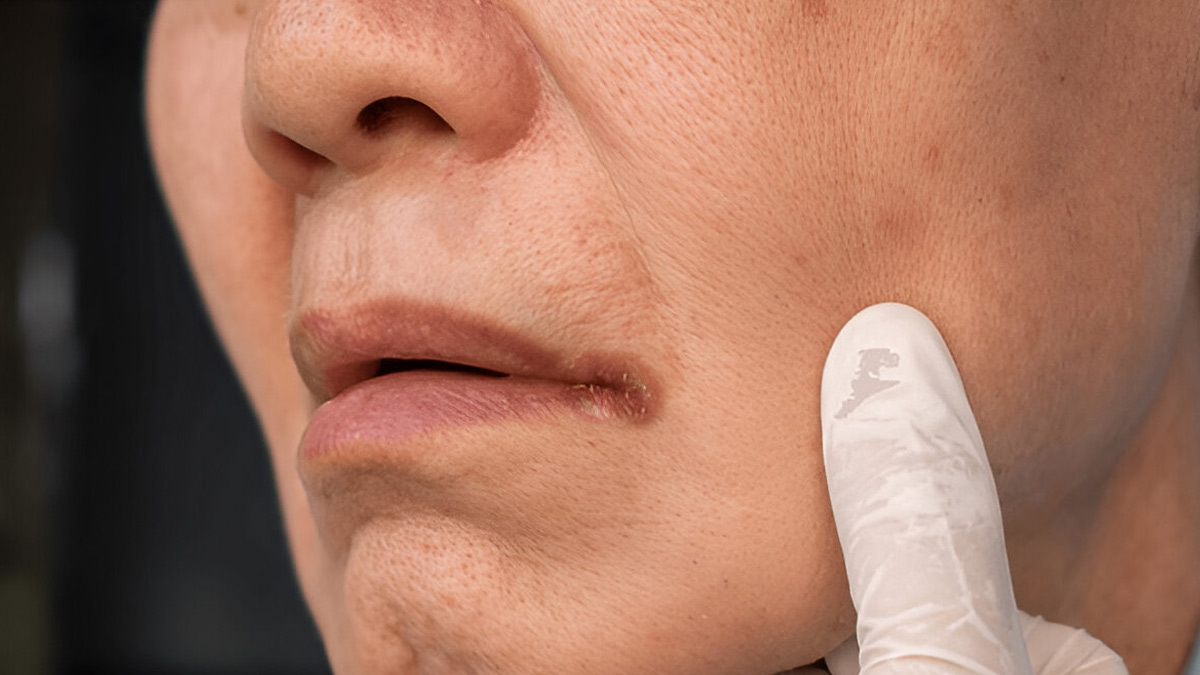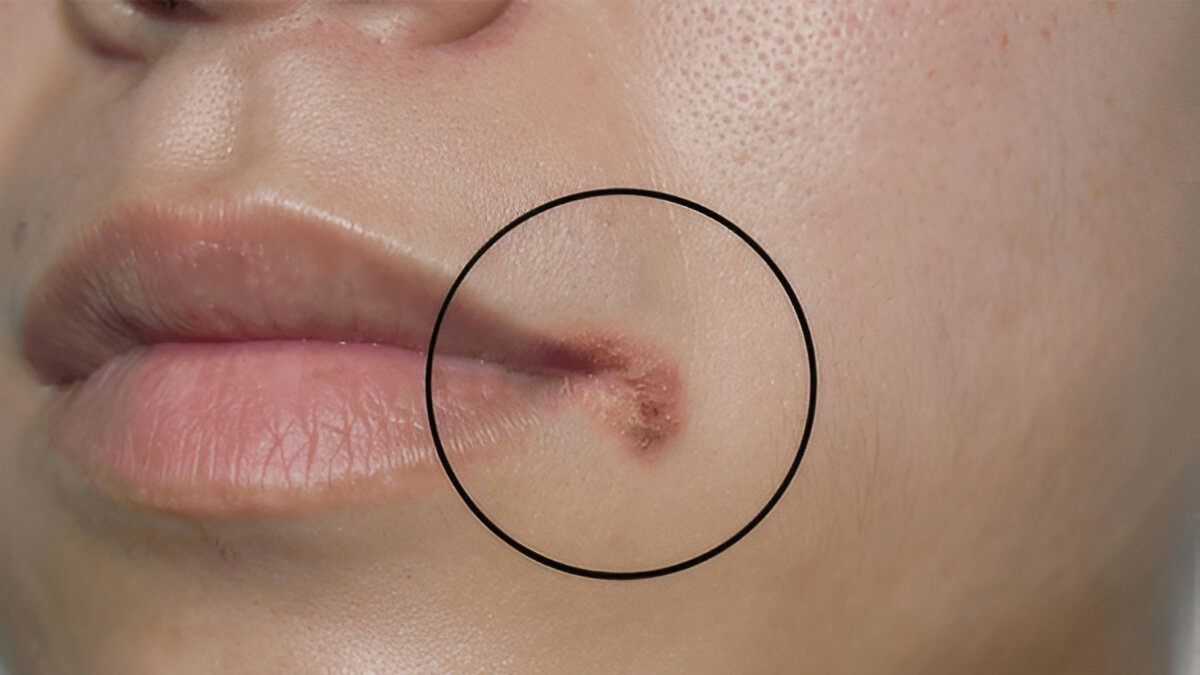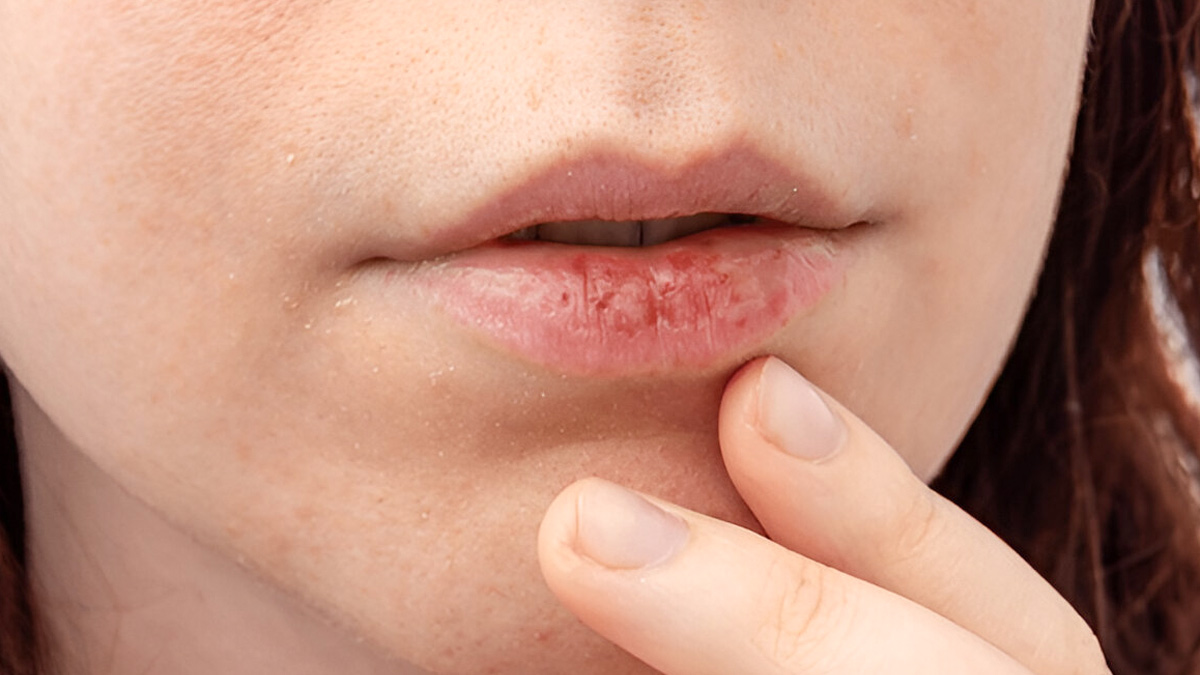
Cracks or sores at the corners of your mouth may seem like a temporary problem or a small issue, but they can be more than just skin dryness. This condition, known as angular cheilitis, is often linked to fungal infections or a weakened immune system. However, in some cases, it can also signal underlying health issues such as vitamin deficiencies, particularly B vitamins and iron. Spotting the cause early can help you manage it effectively and prevent recurring discomfort.
Table of Content:-
What Is Angular Cheilitis?

According to Dr Bipin Upadhyay, MDS (Oral Medicine and Radiology), Consultant Dentist and Oral Medicine Specialist, K.J. Somaiya Super Speciality Hospital & Research Centre, Mumbai, angular cheilitis is an inflammatory, red, fissuring lesion that occurs at the mouth angle. Although it appears to be a trivial irritation, it can be very painful and can be a symptom of several underlying pathologies.
According to StatPearls Publishing, angular cheilitis affects about 0.7% of the general American population, but the risk is higher in certain groups. It is the most common bacterial or fungal infection of the lips and usually appears in two age groups: children and adults between 30 and 60 years.
Also Read: What Should You Eat When You Have Mouth Ulcers? Expert Answers
In older adults, the prevalence goes up to 11%, and it’s even more common among denture wearers, where rates can reach 28%. Men are affected more often, but this is linked more to dentures and health conditions than age itself.
Certain medical issues also increase the risk; up to 10% of people living with HIV and a notable number of patients with Crohn’s disease (7.8%) or ulcerative colitis (5%) may develop angular cheilitis at some point. In rare conditions like orofacial granulomatosis, the incidence can be as high as 20%.
Nutritional Deficiencies And Angular Cheilitis

"B vitamin deficiencies (B2, B3, B6, and B12), iron, and zinc deficiencies are the most frequent nutritional aetiologies of disorders of oral health like mouth ulcers, glossitis, and angular cheilitis, and a deficiency of vitamin C may also impact gum health," Dr Upadhyay highlights. Here's how different nutrient deficiencies influence your risk:
- Riboflavin (B2), iron, and B12 deficiencies are most closely related to angular cheilitis.
- Low iron reduces oxygen supply to tissues, slowing down healing.
- B-vitamin deficiency hampers skin and mucous membrane repair, making cracks persist longer.
- Other Common Causes Of Angular Cheilitis
- Apart from nutrition, angular cheilitis may also be caused by:
- Excess saliva pooling due to lip-licking habits or ill-fitting dentures
- Allergic reactions to lip cosmetics or dental products
- Dry or cold weather that chaps the lips
- Trauma to lip margins
- Systemic illnesses such as diabetes or autoimmune conditions
Treatment Options

Dr Upadhyay warns of the risk of secondary infections if cracks at the corners of the lips are left untreated. He says angular cheilitis tends to become secondarily infected with fungal (Candida) or bacterial (Staphylococcus) pathogens, causing redness, swelling, pus, or delayed healing. Therefore, here are some treatment options to resort to:
- For mild cases, keeping the lips lubricated with petroleum jelly or coconut oil can help.
- Antifungal creams (like clotrimazole) or antibiotic ointments (like mupirocin) may be prescribed by a dentist if infection develops.
- Supporting recovery with B-complex vitamins and iron supplements and avoiding spicy/acidic foods can also ease discomfort.
To prevent recurrence, Dr Upadhyay recommends:
- Maintaining good oral hygiene
- Moisturising lips frequently with a protective balm or oil
- Correcting nutritional deficiencies with a proper diet or supplements.
- Fixing ill-fitting dentures to reduce saliva pooling
- Managing underlying conditions such as diabetes
- Checking often-overlooked areas like the scalp, lips, and corners of the mouth for early symptoms
Also Read: How To Differentiate Sores On The Roof Of Your Mouth
In persistent cases, advanced treatment may be required:
- Prescription-strength antifungal and antibiotic combinations (e.g., nystatin, fusidic acid)
- Vitamin B12 injections or iron infusions for severe deficiencies
- Laser or light therapy to boost tissue healing
- Special dental appliances to reduce saliva pooling
- Biopsy, if cracks fail to heal, to rule out precancerous or autoimmune diseases like oral lichen planus
If angular cheilitis lasts for more than two weeks, consulting a dentist, preferably an oral medicine specialist, is essential.
Conclusion
Angular cheilitis may seem like a small issue, but it often points to underlying nutritional, infectious, or systemic problems. With the right care, ranging from home remedies and nutritional corrections to professional treatments, healing is possible. Paying attention to recurring cracked mouth corners and seeking timely dental consultation can prevent complications and restore comfort to your daily life.
Also watch this video
How we keep this article up to date:
We work with experts and keep a close eye on the latest in health and wellness. Whenever there is a new research or helpful information, we update our articles with accurate and useful advice.
Current Version
